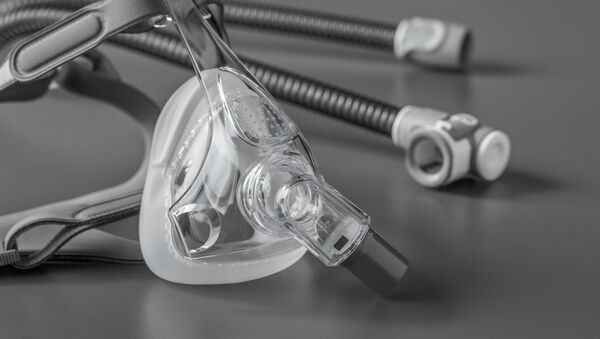Britain’s National Health Service (NHS) has approved a breathing device, which can be used for COVID-19 patients, designed by engineers at Mercedes High Performance Powertrains (HPP), engineers with University College London (UCL) and clinicians at UCL Hospital.
The so-called Continuous Positive Airway Pressure (CPAP) breathing devices will help COVID-19 patients, “with serious lung infections to breathe and avoid having to use ‘invasive mechanical ventilation’”, according to the car maker.
— Formula 1 (@F1) March 30, 2020
— Mercedes-AMG F1 (@MercedesAMGF1) March 30, 2020
The more invasive breathing devices involve tubes being placed via the windpipe or through the skin.
“If the patient can stay on a CPAP machine they can stay on a ward looked after by specialised nurses rather than ICU nurses. A ward can probably look after 10 of these patients with 2 nurses and one doctor. 10 patents on ICU may need 5 or 10 nurses and 3-4 doctors", explained Professor Tim Cook with Anaestheia and Intensive Care Medicine, at the Royal United Hospital Bath NHS Trust"
Cook said that the, "cost and manpower needed on ICU is much much greater and ICU is a lot more complex and hazardous".
He summed up his thoughts by saying, “Anyone who can be kept out of ICU by using CPAP is a win-win-win for patient, healthcare system and staff!”.
Seven UK-based F1 teams have come together to assist with the production of ventilators, which are in short supply but are in high demand. Having access to a ventilator could mean the difference between life and death for those with severe respiratory illnesses.
— Formula 1 (@F1) March 27, 2020
Dr George Dempsey, Professor Mark Tooley and Professor Stephen O’Connor, all from the Institute of Physics and Engineering in Medicine, explained to Science Media Centre:
“Covid-19 causes a Pneumontis, an inflammation of the lining of the lungs. The small buds in the lungs responsible for oxygen transport, alveoli, can collapse and the inflammation can slow down oxygen transport. A severe pneumonitis will lead to a lack of oxygen being transported into the blood stream from a breath drawn into the lungs. Oxygen in the blood stream keeps all of the organs in the body alive and working”
They noted that while CPAP will be useful, especially due to the short supply of ventilators, they won't be suitable for every patient. For example, patients who are unable to breath sufficiently on their own or need to be sedated will still need ventilators, they said.
‘Project Piptlane’, as it is known, is part of the UK’s COVID-19 Ventilator Challenge consortium whereby manufactures come together to design and produce respiratory devices, in order to assist with the growing pressures posed by the disease.
Gary Elliot, CEO of the Aerospace Technology Institute, said, “rapid turnaround of this new design and manufacturing capability”, shows, “what can be achieved when different sectors pull together”.
— ATI (@UKAeroInstitute) March 30, 2020
Competition laws, which would often block certain types of coordination among different businesses, have been temporarily suspended by the British government - which is calling for increased collaboration so that challenges posed by COVID-19 can be more efficiently tackled.




